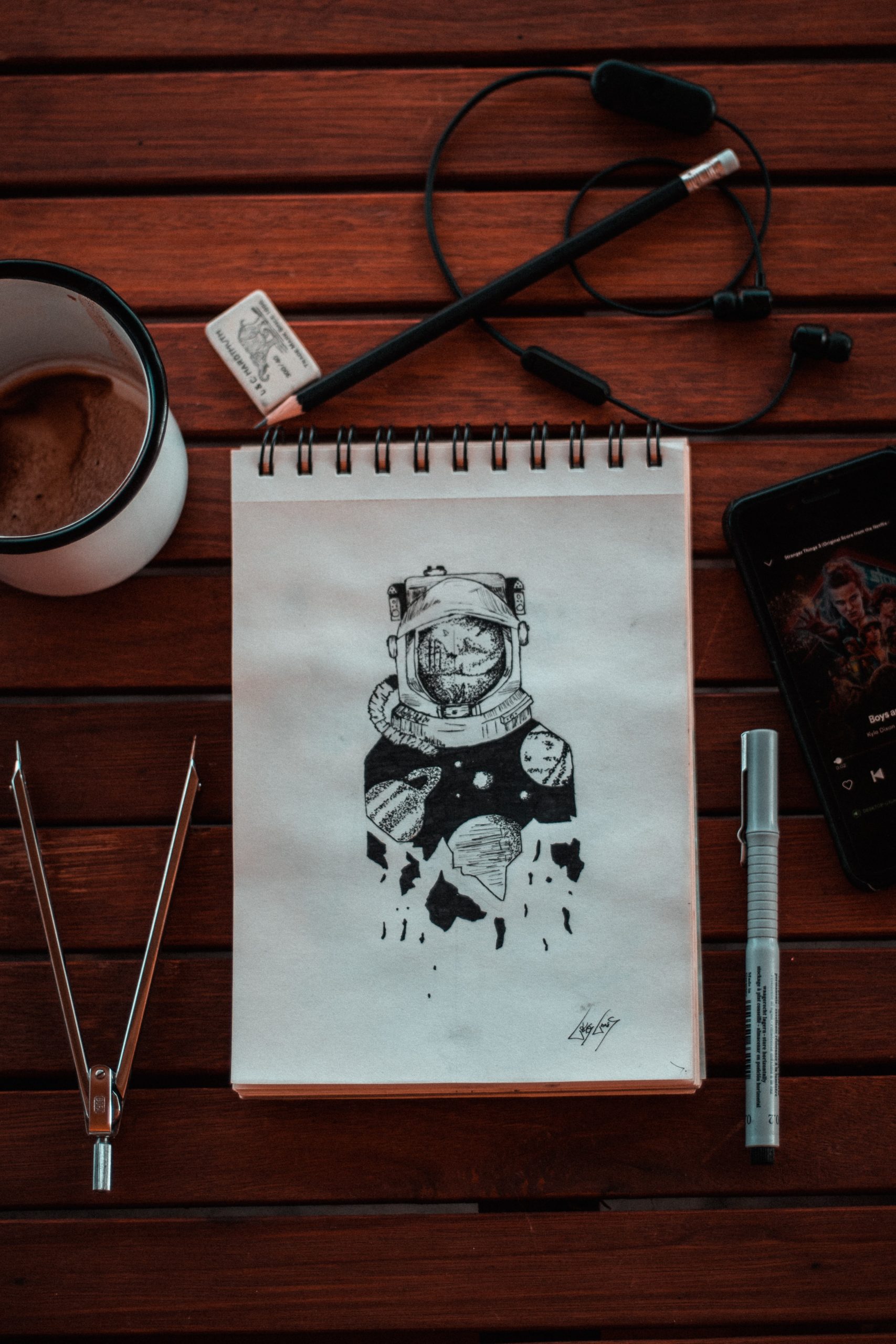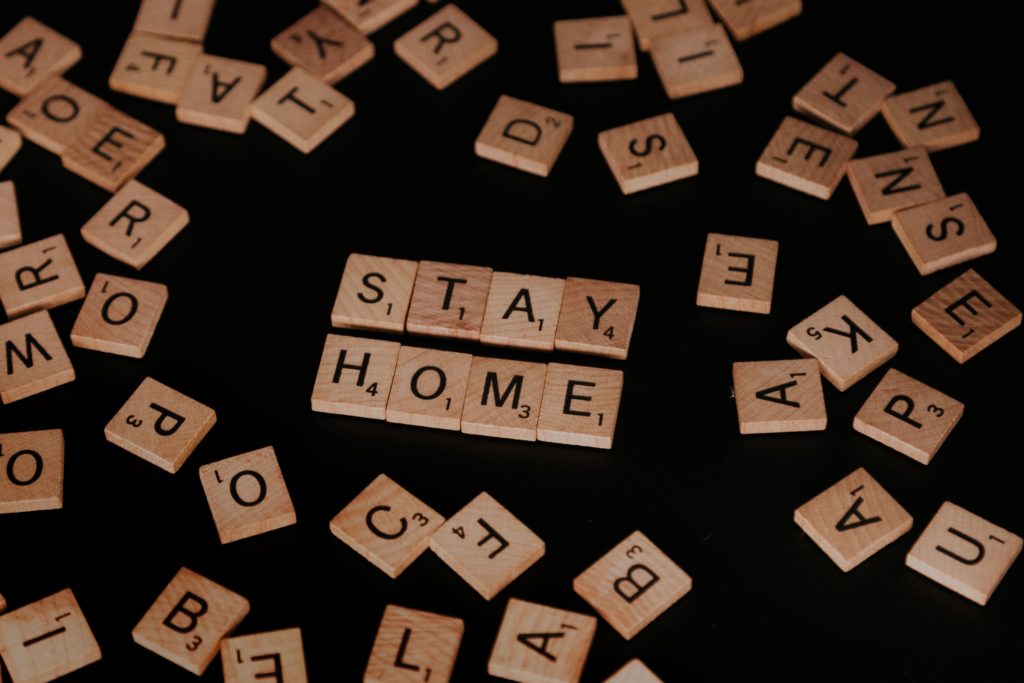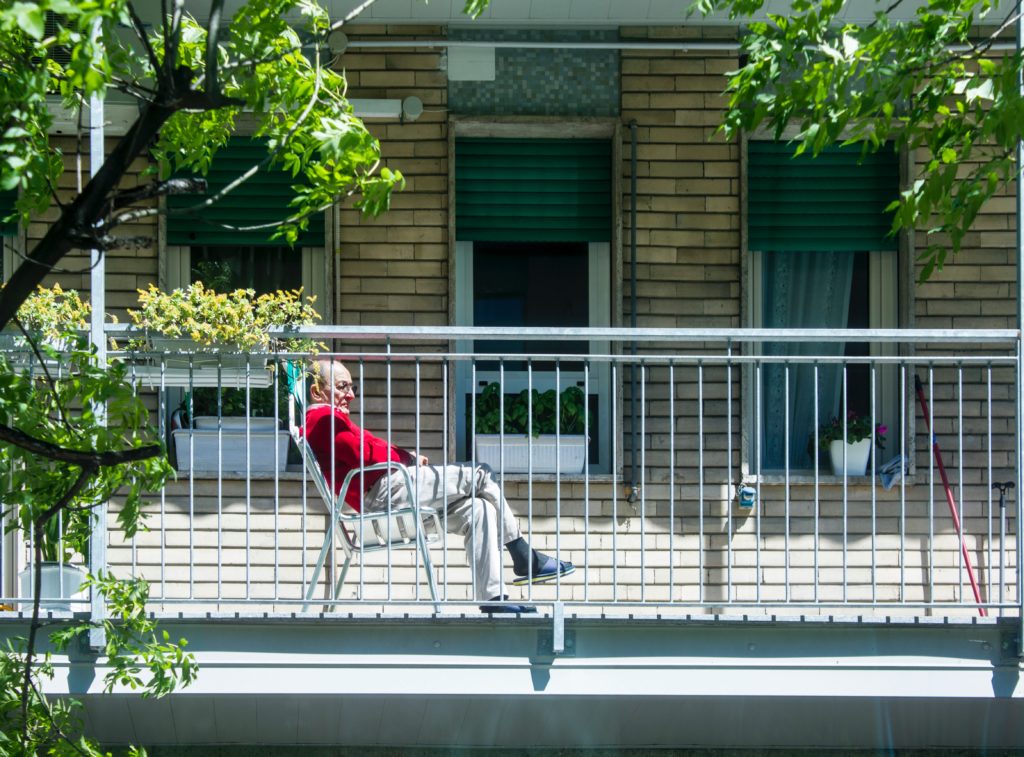
Top tips for staying sane in a pandemic
Clinical psychologist Michael Killoran Ross suggests we can learn from astronauts and polar scientists to keep mentally healthy in this time of lockdown.
These are strange, uncharted waters. For almost all of us, pandemics were things of the past, tragic events which occurred long before the progress of modern medicine. And yet, here we are, in the midst of a global crisis.
It’s an anxious time for everyone, for those isolated at home, separated from family and friends, and for those who are continuing to perform their usual work routines, especially those on the front-line of our health and care services. Yet as ‘lockdown’ becomes the new normal, considering the best means of coping with enforced isolation is becoming increasingly important.
But the problem is precisely the novelty of these times, far outside the experience of almost all of us. How do we learn what’s best to do, or not to do? To whom can we turn for advice? And which advice can be trusted?
One important potential source of helpful advice may be available from the research regarding those who choose to live in isolated, confined, extreme situations. These include polar scientists, astronauts, submariners, oil-rig workers and expeditioners. Smith and Barrett have reviewed the literature in this area and their insights may prove valuable.

What can the collective experiences of those who choose to live in isolated environments tell us about our own current circumstances? The physical contexts encountered by these groups differ from our own domestic experience, but the psychological stressors are somewhat similar. We share a need to adapt to unusual conditions and to learn to cope with a sense of threat, uncertainty and danger. Studies with people living in extreme environments may point us to some useful strategies.
From the research literature, we know that transitioning from our usual lives to our current confinement takes time and understanding that a transitional period is necessary (perhaps up to 10 days) is useful. To ease this transition, the development of a routine seems crucial.
Routines appear to facilitate a sense of control, and help to reduce uncertainty by ensuring consistent structure in each day.
So what does that mean for you and me in practical terms?
Well, begin by acknowledging what you’re feeling. It might be helpful to apply some curiosity to your own inner world. You might say, “I’m noticing some anxiety, or loneliness, or sadness.” It’s essential, and very helpful, simply to recognise that this is not a normal situation you might not be responding well to. This is extraordinary and so could require you to draw on extra reserves from your inner depths.
If you’re feeling particularly stressed, find your own way to connect with your physical body. Take some slow breaths, press your feet hard into the floor, slowly press your fingertips together. At the same time, focus on what you are doing. Notice what you can see, hear and smell, right now.
Uncertainty about what lies ahead easily leads to feelings of anxiety and fear. Thinking rationally about what risks we actually face and taking steps to minimise those risks can be useful. Remember to focus on what you can do rather than what you can’t. Fear and anxiety are normal responses to current events, you can’t control them. Nor can you control the spread of the virus all by yourself. But you can control what you do, here and now, and focussing on that can be helpful.
Under the present restrictions on our lives, monotony and boredom are genuine threats. This is where social media can be of enormous value, through streaming media and podcasts, to Facetime interactions with family and friends. Variety appears important, and taking up hobbies and creative pursuits, neglected in the past through a lack of time, is helpful.
For Ernest Shackleton’s crew in 1908, the staging of theatrical performances, and reading aloud to one another proved invaluable. Amateur dramatics, anyone?
Alternatively, try a new recipe or reach for that board game at the back of the cupboard that you’ve forgotten about. Exercise is crucial too, even when only indoors, and there appears to be no end of ‘YouTube’ routines to engage with.

It might be worthwhile to think carefully about interactions. Letting friends and family know what times through the day are best for calls might enhance the value of that contact. Similarly, it might be important to consider what social media content might be the most useful to you. With 24-hour news feeds, it becomes very easy to overload ourselves and others with consistently depressing information.
Feelings of low mood and low motivation are almost inevitable consequences of isolation. Again, acknowledging those feelings and, at the same time, focussing on small achievements can be beneficial. Sharing these achievements with others, or even holding celebration meals to mark these achievements can bolster a sense of self-sufficiency, of being able to cope. Keeping a journal during this time can be an important way of processing thoughts, feelings, frustrations and worries.
Being cooped up with the same people for extended lengths of time can be stressful and this includes those nearest and dearest to us. Tolerance for others and for ourselves is called for and some degree of self-restraint may be invaluable. It can be useful to consider establishing an area of personal space in the home, a safe place to retreat to when the going gets especially tough. Research indicates that setting some ground rules for difficult discussions about the irritations experienced among us in ‘lockdown’ can also be necessary.

Above all, be kind to yourself. Think of all the supportive things you would say to a family member or colleague in these dark days. Then, say those things to yourself!
The important thing to remember is that, this, too, will end!
Like what you’ve read? Consider supporting the work of Adamah by making a donation and help us keep exploring life’s big (and not so big) issues!

One Comment
Josie Mitchell
Hi! I’m a Swiss Single Mom living in Oklahoma, I found your article to be soooo Usefull!